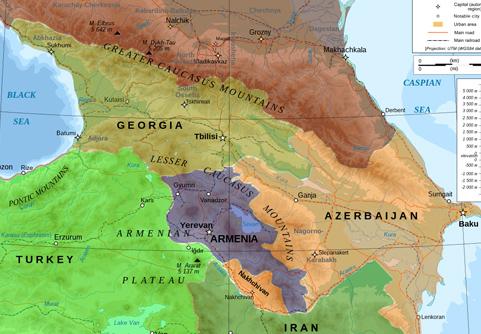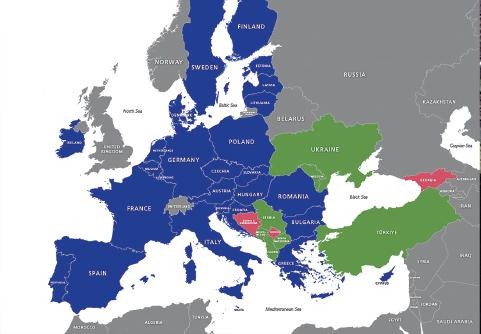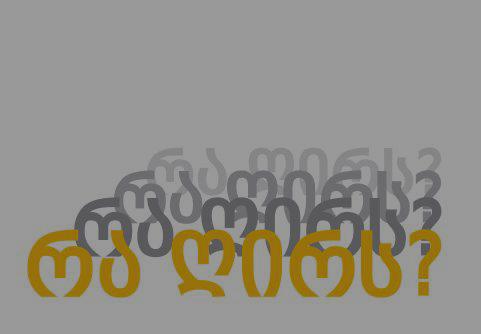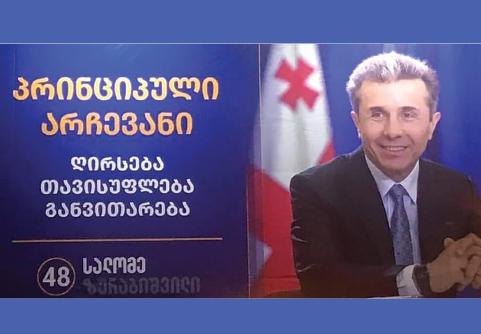Author : Soso Berikashvili

“People are the source of power in Georgia,” says Article 3 of the Constitution of Georgia, which is dedicated to democracy. According to the Constitution, we have a democratic republic in which people elected by the people decide the fate of the people and, within the limits of their competence, dispose of their property.
All this seems to be very easy to grasp and understand, but in practice it is not so easy – people find it difficult to understand this most important postulate of the Constitution of Georgia. There are many reasons for this. Today I would like to talk about one of them and not the least important one: It is difficult for people to realize that the budget money, which the people in power dispose of according to their will, is in fact their money!
The Georgian state budget is mainly made up of taxes (there is also Western aid and debt, but that's for another time). And we, the people who live in this country, pay taxes. Every one of us pays, always and unconditionally, whether we are aware of it or not.
If you conduct a survey and ask people how much they earn, in 99 out of 100 cases they will give you the amount they receive directly and not their real salary, which is 25% more than this (net) amount (for simplicity's sake I have deliberately left out the 2% that goes to the pension fund).
Suppose a person is employed as a nurse and receives a monthly salary of 400 GEL (unfortunately, the number of such low-income people in our country is very high). During a year, such a person pays 1200 (one thousand two hundred!) GEL to the budget as income tax only. If the state gives this person 200 GEL before the elections, they will be happy, because this amount is half of their monthly salary. However, this person has paid six times as much to the budget, and they are simply unaware of it.
The solution here is simple, and many developed countries have taken this path – if you pay the full amount first and then make people pay income tax, this will greatly increase their perception of themselves as taxpayers. This is a relatively radical solution, and in this case, it will not be easy to administer, but it will benefit the democratic development of the country so much that it is worth a try!
Relatively “lighter” forms also exist. For example, on the expenditure side of the bank application, there may be a column called “Amounts transferred to budget”. Believe me, even if there is a mortgage loan, this amount will be at the top of the expenses. Or maybe when we get a text message from the bank about a salary transfer, there should also be information about the corresponding transfer to the budget. For example: “In September 2022, your salary was 1250 GEL, of which 1000 GEL was credited to you and 250 GEL to the state budget.”
The state can easily implement all this, but the state does not see it in its interest, because if citizens realize that the budget money is their money, they will demand much stricter accountability for any spending.
In the absence of political will on the part of the state, individual employers can start by informing their employees about the income tax they have paid.
People who are employed in the “informal” sector or who receive wages “in hand” (as you know, there are many such people in this country) often think that they do not pay taxes because their employer does not withhold income tax. Obviously, they are wrong. Income tax is neither the only nor the most important tax in Georgia. Value added tax (VAT) is much more important, accounting for more than half of the tax revenues in the budget. VAT is an indirect tax, which means that someone else pays the tax in the budget, but the tax burden falls on the end consumer, that is, ordinary people. For example, if you buy a chair for 118 GEL, the seller budgets 18 GEL as VAT, but in reality, you have paid that 18 GEL. If there was no VAT, you would have bought the same chair for 100 GEL. Although not everything is subject to VAT, about 80% of the products we consume contain it.
We also have other indirect taxes. In particular, excise duties and import taxes, which are also included in the cost of many of the goods we buy and which we pay indirectly. In this case, it would be good if the taxes were separated out in the cost of the goods and we knew how much we were actually paying. Only restaurants in Georgia use this practice, but they are driven by marketing goals rather than a desire to raise awareness.
It would be helpful in raising awareness if, for example, we received a text message from a petrol station telling us that when we fill up our car, the cost of the petrol includes VAT, excise duty, and import duty.
The tax burden varies according to the category of goods we consume (for example, if we consume excisable goods such as tobacco and alcohol, our tax burden increases), and it can be calculated more or less accurately using the Geostat calculator (http://mytaxes.geostat.ge/mytaxes). According to my estimate, if your average income is GEL 1000 per month, you pay about GEL 500 in taxes to the state. That's not so little is it?
I believe that the implementation of any of the mechanisms I have suggested will help us understand that the rulers of the state are accountable only to the people, that is, to us, and that in the end it is we who should decide what our money is spent on, whether it is road construction, vintage subsidies, roofing of Gelati monastery, or subsidies for substandard apples. I am not saying that we should not help the farmer whose vineyard has been damaged by hail, we just need to know that in the case of subsidies we are the ones helping him and not the Prime Minister or the ruling party.










